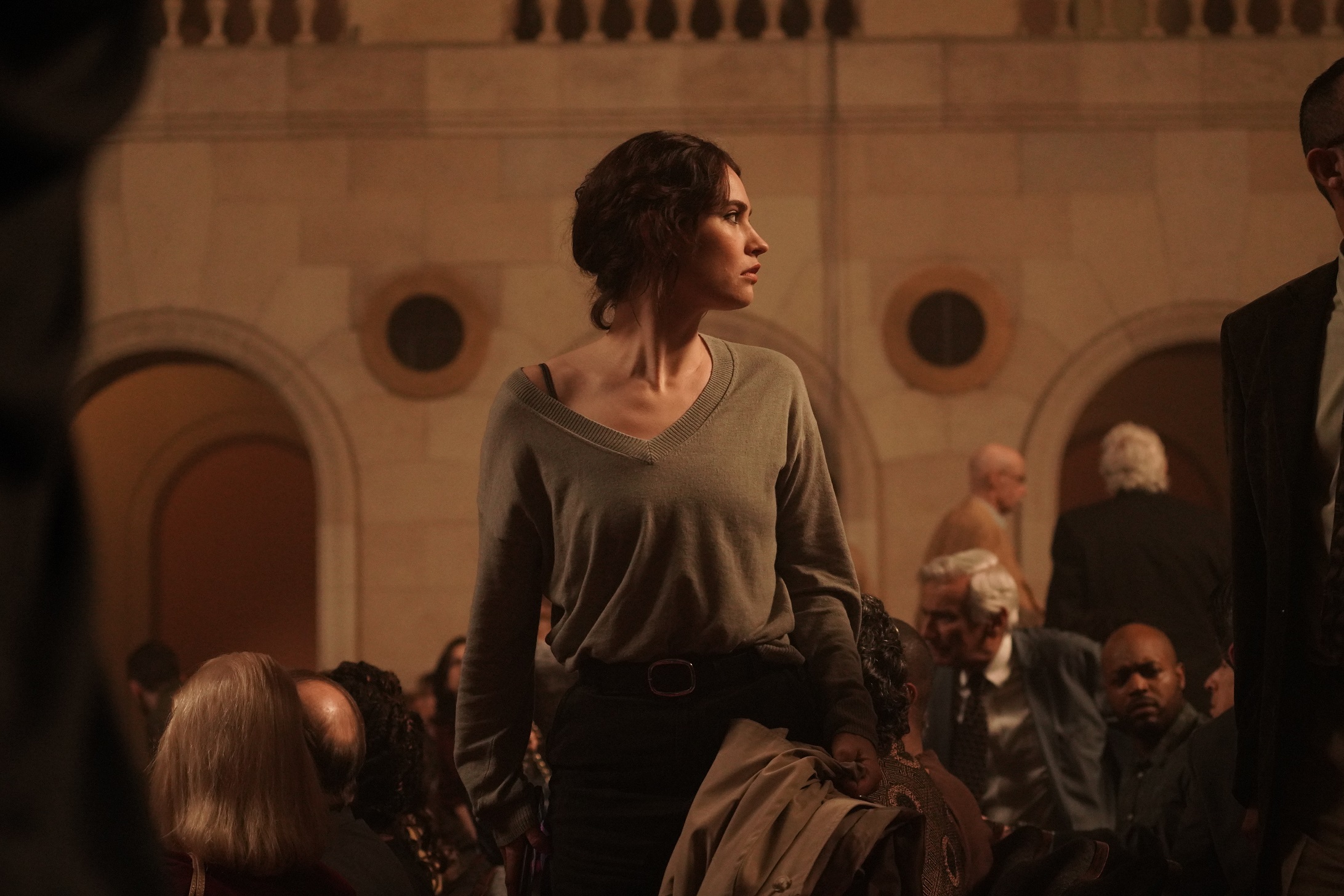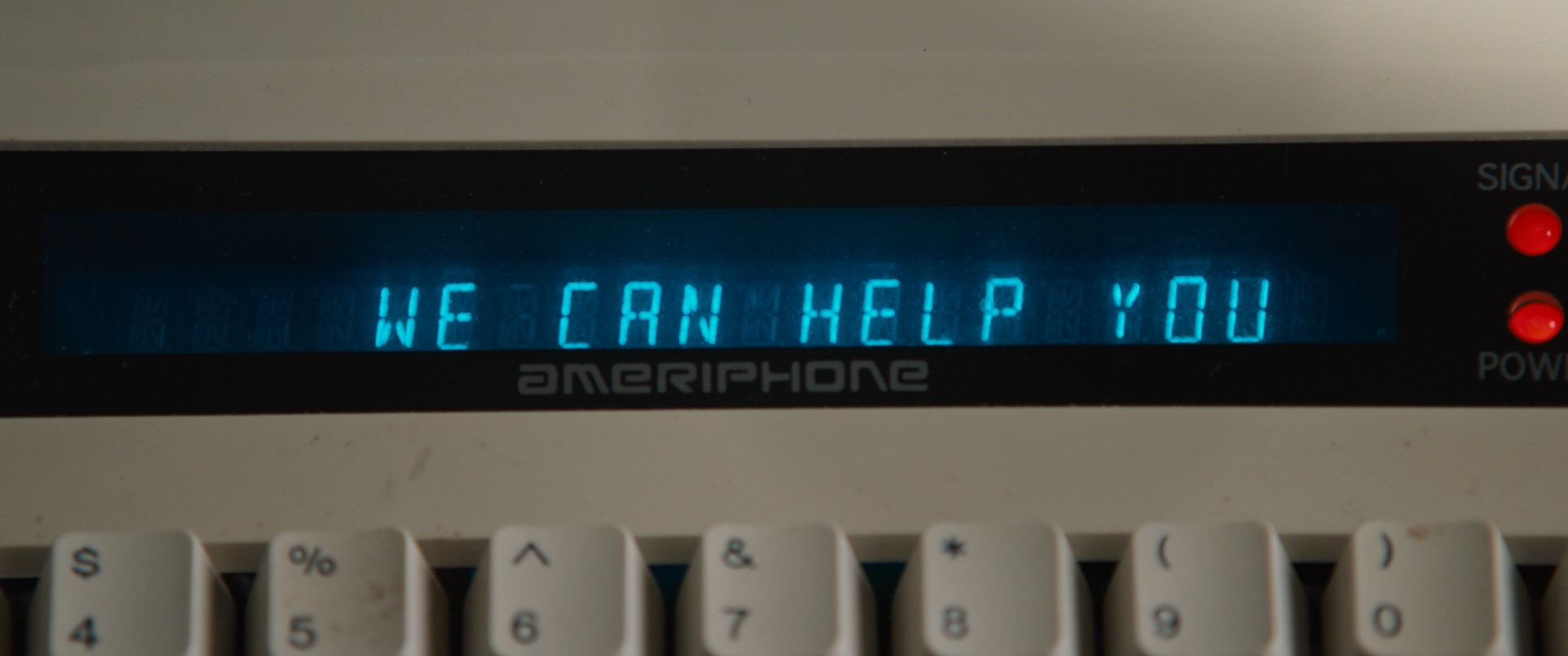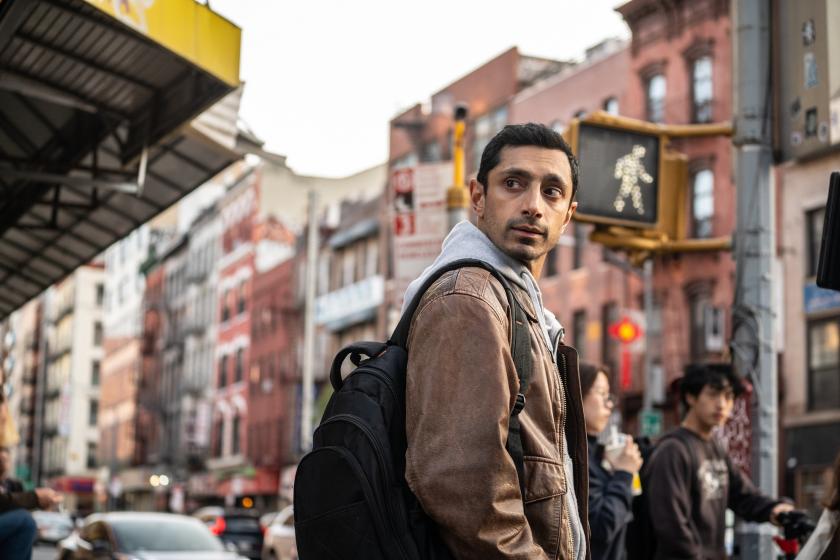Ash (Riz Ahmed) is one of cinema’s capable men, the kind of monastically devoted pro made to be a hitman or getaway driver. David Fincher’s The Killer parodied the type with Michael Fassbender’s system-driven assassin, and from The Day of the Jackal to Drive, such men live or die by their method.
Ash’s gig is, though, intriguingly odd: he helps corporate whistleblowers with cold feet safely return evidence to employers, communicating via the Relay phone system for deaf callers, who type messages then spoken by operators, an old-school set-up firewalling him from detection. Ash is also versed in the arcana of postal tracking and other elaborate cut-outs to avoid his adversaries’ traps. He seems mute and maybe deaf himself, till his silence cracks at an AA meeting where his own pained past as a failed Wall Street whistleblower and Muslim in post-9/11 New York is revealed. Waking at 5 am in an ascetic bedroom, his life now appears sacrificially spartan. Though he’s been an action hero, Ahmed’s slight frame and soulful performance suggest vulnerability in a paranoid world.

We see Ash shepherd one client to safety, then reluctantly take on Sarah (Lily James, pictured above), a scientist with incriminating knowledge of a product’s cancer side-effects. Corporate goons led by Dawson (Sam Worthington) are parked outside her apartment building, with the intimidating capabilities big money can buy. Ash too is watching. Relay’s most delicate effects come as Sarah teases remote intimacy from her unseen saviour, lingering at her window in a silky top, displaying the dangerous attraction of being watched, and running through virtuoso variants of husky yearning on the relay’s bland handover phrase, “Go ahead”. The eroticism of distance is compounded by Sarah’s fear and Ash’s suppressed longing. His controlled life and closed systems unravel from this point, as he’s lured into the open.
 Scottish director David Mackenzie sets Ash’s spare existence in freshly seen New York squares, cafes and bars, extending upstate along the riverside Hudson rail line. Mackenzie’s mastery of masculine character-based action was shown in the best film from a Taylor Sheridan script, the neo-Western Hell or High Water (2016), and a climactic chase among an industrial estate’s stacked containers and swampy reeds carries physical threat and moral peril.
Scottish director David Mackenzie sets Ash’s spare existence in freshly seen New York squares, cafes and bars, extending upstate along the riverside Hudson rail line. Mackenzie’s mastery of masculine character-based action was shown in the best film from a Taylor Sheridan script, the neo-Western Hell or High Water (2016), and a climactic chase among an industrial estate’s stacked containers and swampy reeds carries physical threat and moral peril.
The perversity of Ash’s role as a fixer for non-whistleblowing typifies Justin Piasecki’s sly script, which ends in a series of mind-scrambling reversals which maintain logical faith with all we’ve seen. The strange, lean setup and taut set-pieces undermine Relay’s claims on realism and therefore true pain. Really, it’s a modern take on the pulp fables of writers such as Charles Willeford, with crime and passion spurring characters to their fates, while Mackenzie taps Hitchcock for voyeuristic tension. Director and cast keep the conceit’s heart beating.















Add comment